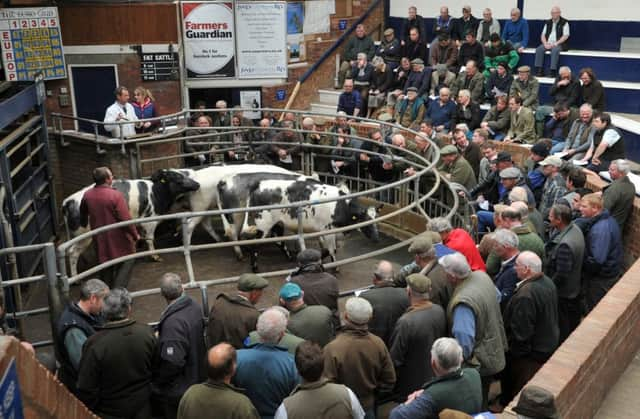Healthy outlook as breeding sales begin


Auctioneers report an upturn in demand for stock, steady prices and greater confidence in the market, on the eve of the breeding sheep season, and hundreds of farmers are expected at one of the country’s leading sales in North Yorkshire this week.
Chris Dodds, executive secretary of the LAA, said: “The forthcoming breeding sheep season looks promising. With more confidence in the market, breeding ewes and breeding lambs are predicted to be in good demand.
Advertisement
Hide AdAdvertisement
Hide Ad“Store cattle, which farmers buy and rear to a weight and size that’s ready for slaughter, have lifted in value over the last three or four weeks. Many markets are now reporting prices very similar to this time last year, which is great news for beef producers.
“Prime cattle, ready for slaughter to go into butchers and retailers, have started to get a little dearer and are definitely moving in the right direction, with recent weeks seeing a noticeable rise in demand for all categories – although there is a long way to go before this part of the beef market is fully viable again.
“The same can be said of cull cows, which are at the end of their useful breeding life and whose meat usually ends up being exported, or put in processed food or pet food.
“Feed products, like wheat, barley and other concentrates, are looking cheaper to buy in and there has been a lot of grass on the fields this year. This all helps to take the pressure off beef and sheep producers.”
Advertisement
Hide AdAdvertisement
Hide AdHawes Farmers’ Auction Mart has built its reputation on the quality of its breeding stock sales, Andrew Pratt, the mart’s chairman said. And on Monday and Tuesday this week it will hold one of the country’s biggest breeding sheep sales, £2 million expected to change hands. Some 29,500 mule gimmer lambs will be auctioned off at the two-day sale.
Mr Pratt said it made business sense for farmers to choose auction marts over abattoirs: “The marketplace is the only way to get the true value for your stock because buyers come and bid for it rather than at an abattoir which pays you a set price. This week’s sale attracts around 500 farmers to buy and sell from all over the country.”
According to the LAA, the number of livestock bought and sold through auction marts has steadily increased over the last decade or so as the industry recovered from the dessimation caused by the Foot and Mouth Disease outbreak in 2001, and this has been achieved against a continual fall in numbers within the national herd and the national flock.
In England and Wales annual turnover through auction marts is in excess of £1.8billion.
Advertisement
Hide AdAdvertisement
Hide AdChris Dodds added: “Markets thrive best when demand outstrips supply.
“If all or most farmers and feeders sold their livestock through the live auction system, then the retailers would have no choice but to buy stock through the markets. This would create more demand, through more buyers around the ring, and more demand would lead to a better price.”